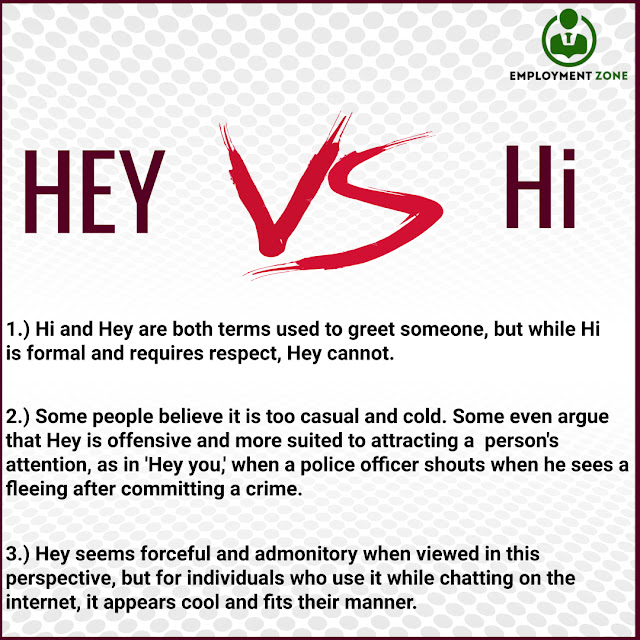Difference between Hey and Hi

Hi, hey, and hello, among other terms, are often used greetings when meeting new people. People pay little heed to the word used to refer to them. While hello was formerly the standard manner to greet each other around the world, more casual Hi and Hey appear to have taken over the email-using age of today. While most people use these terms interchangeably without giving much thought to their differences, others believe that they are not the same or synonymous, and that there are distinctions between them. Let's look into Hi and Hey in more detail. Hi Hi is a greeting used by individuals of all ages. It is more formal than Hey, but less formal than Hello. This is why it has gained popularity among people of all socioeconomic backgrounds. It is also a respectable term that does not insult senior citizens. Hey Hey is a somewhat informal greeting that is increasingly being used by the younger generation to greet friends and even strangers. Many people find the use of this word to be i...

